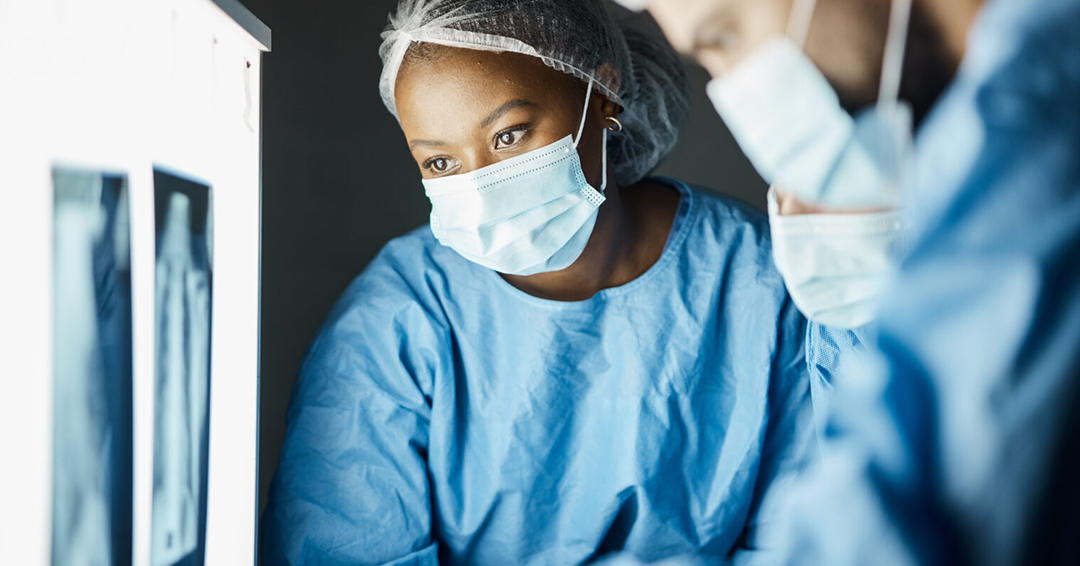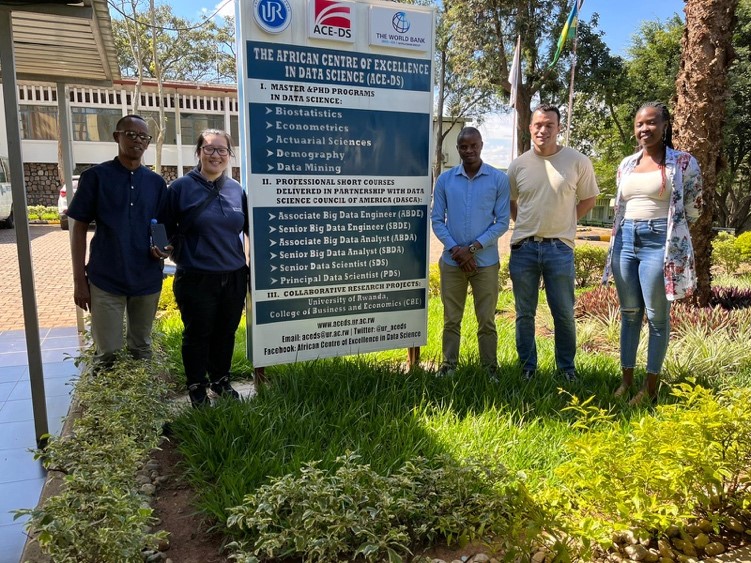
McGill initiative improving access to healthcare in under-resourced countries in Africa
Each year, the number of new cases and deaths from cancer, heart disease, dementia, and other non-infectious diseases continues to rise in resource-constrained regions of the world. In the next two decades, three-quarters of all deaths from these conditions will be in the Global South.
The reason for this disparity is complex. For example, the lack of infrastructure, skilled personnel, and robust policy required to provide adequate care in Africa contributes to its outsized disease burden.
“In Canada, death rates for many of these conditions is decreasing thanks to better detection and disease management through diagnostic imaging,” says Udunna Anazodo, PhD, and William Dawson Scholar and Assistant Professor of Neurology and Neurosurgery at McGill. “However, in many regions of the world, diagnostic imaging is simply not available. This lack of access means higher death rates.”
For example, says Anazodo, Quebec has some 102 magnetic resonance imaging (MRI) systems – routinely used in cancer care and in researching complex diseases – to serve a population of less than nine million people. In contrast, West Africa, has fewer than 90 scanners for 370 million people. Some countries, like Togo, have no MRI systems.
Improving access
In 2022, Anazodo led a study in conjunction with the Consortium for Advancement of MRI Education and Research in Africa (CAMERA) that assessed the challenges of MRI capacity in Africa and introduced a framework to improve access.
A year later, a pilot capacity building program was setup to send McGill graduate students to Africa to help increase imaging access. Between June and September 2023, McGill students travelled to Nigeria, Rwanda, Kenya, Tanzania, and South Africa, supported by the McGill Graduate and Postdoctoral Studies Doctoral Internship Program (DIP) and Graduate Mobility Awards (GMA). The DIP and GMA funds students to embark on experiential learning activities across the world.
Working in partnership with CAMERA, the students provided hands-on skills training for two CAMERA projects launched in 2023; Sprint Artificial Intelligence Training for African Medical Imaging Knowledge Translation (SPARK) and Scan With Me (SWiM).
Lighting the SPARK

From April to August 2023, SPARK trained 70 African students and medical residents from 15 African countries on artificial intelligence (AI) skills for medical imaging. The pilot SPARK program led by the Medical Artificial Intelligence Lab at Lagos, Nigeria taught African researchers how to develop AI tools for detecting brain lesions.
Six medical physics students from McMedHacks and Prof. Shirin Abassi Nejad Enger’s laboratory at McGill’s Gerald Bronfman Department of Oncology, along with other Canadian graduate students, taught computer programming basics; ran the first pan-African brain hackathon; and supervised 10 teams in creating new AI solutions. The teams participated in an International Brain Tumor Segmentation Challenge, with teams from Africa participating for the first time.
The SPARK teams, supported by Compute Canada and Lacuna Fund, presented their work at the 26th International Conference on Medical Image Computing and Computer Assisted Intervention) in Vancouver. One of the methods – Bridging the Gap – took the second-best AI model prize in a sub-challenge. Together, the SPARK program, created eight AI models and showcased this at international and regional conferences including at the 2023 Deep Learning Indaba meeting in Ghana. These models can be freely downloaded on the SPARK repository in keeping with McGill’s Open Science best practices.
Unlocking the power of experience
In August 2023, Prof. Matthias Friedrich, Head of the Courtois CMR Research Group at McGill University Health Centre, partnered with Accuread Radiology Nigeria, Euracare Multi-Specialist Hospital Nigeria, Crestview Radiology, Lagos, Nigeria, on two-month pilot SWiM program to improve scanning techniques and the image quality produced on the limited infrastructures in the region.

The program trained 43 imaging experts across 16 countries in Africa and the Global South. Katerina Eyre, an Experimental Medicine PhD student; Harrison Aduluwa, an MSc student in the Integrated Program in Neuroscience; and a team of experts providing hands-on training on acquisition best practices, focusing on cardiac MRI.
The DIP and GMA supported Eyre ‘s travel to Lagos to scan with imaging centers and from there train others. This included implementation of her advanced cardiac MRI techniques developed during her PhD.
At end of the training, the imaging specialists gained experience in producing diagnostic-quality images at significantly reduced scan time and acquired the skills to collaborate effectively with colleagues at McGill and around the world in cardiac MRI research. The optimized cardiac MRI protocols created by SWiM participants are available on the program’s repository for anyone in resource-constrained settings to use. This work was presented at recent Society of Cardiovascular Magnetic Resonance Global Conference and the International Society for Magnetic Resonance Imaging in Medicine Accessibility Workshop.
What lies ahead
Together, SPARK and SWiM are steadily building a sustainable ecosystem for diagnostic imaging to thrive in Africa. The two programs will be scaled up in 2024, with expansion to other regions of the world. These are excellent opportunities for McGill labs and graduate students to lead innovations in global health.
“Any researcher, clinician, resident, student, or post-doctoral trainee working in any aspect of imaging from engineering of devices to data acquisition, analysis, and diagnostic applications across disciplines are invited to join in democratizing diagnostic imaging to expand diversity and close disparity gaps,” says Anazodo.
“Thanks to the DIP and GMA funding support, students will continue to benefit from knowledge sharing, form deep collaborations in Africa, and gain leadership skills that will prepare them to be world-class academics.”
Contact Udunna Anazodo to learn how to participate.

